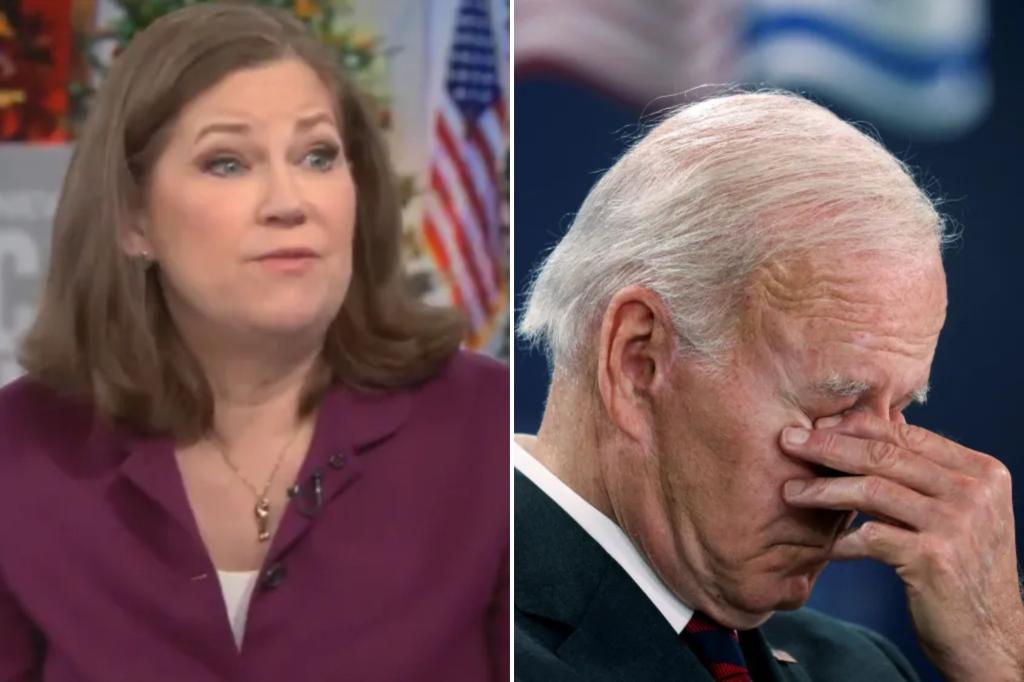The 2024 presidential election cycle witnessed a significant, yet arguably underreported, narrative surrounding President Joe Biden’s cognitive abilities. Veteran CBS News reporter Jan Crawford criticized the media’s hesitant approach to covering Biden’s evident cognitive decline, arguing that more robust reporting could have dramatically altered the election’s trajectory. Crawford pointed to Biden’s disastrous debate performance against Donald Trump as the turning point where the issue became undeniable, even though signs had been present for some time. She emphasized that the media’s reluctance to directly address the issue allowed the narrative to fester until it became a spectacle, rather than a subject of serious discussion and investigation. This, she argued, was a journalistic failure that potentially deprived the public of crucial information needed to make informed decisions about the country’s leadership.
Crawford’s critique centers on the idea that a more proactive media could have sparked a Democratic primary challenge, potentially reshaping the entire election landscape. She referenced a Wall Street Journal report detailing how White House aides worked to shield Biden from public scrutiny and manage perceptions of his declining mental acuity. This alleged shielding, she argued, further enabled the suppression of a critical conversation about Biden’s fitness for office. The report described how staffers implemented strategies to limit Biden’s unscripted interactions, effectively minimizing opportunities for the public and the press to assess his cognitive state. Crawford contended that had the media more forcefully questioned Biden’s capacity to lead, the Democratic party might have opted for a different candidate, perhaps preventing the scenario that ultimately unfolded.
The consequences of the media’s reticence, according to Crawford, were far-reaching. By not adequately addressing Biden’s cognitive state, the media inadvertently contributed to a situation where the president’s fitness for office became a subject of speculation and partisan attacks, rather than a matter of open and transparent public discourse. This contributed to a climate of uncertainty and distrust, arguably undermining the integrity of the election process itself. Crawford argued that a more rigorous examination of Biden’s cognitive abilities by the media could have prompted a more thorough discussion within the Democratic party about the best candidate to put forward. This, in turn, could have led to a different nominee, potentially altering the outcome of the general election.
While acknowledging reports of Biden’s struggles, including gaffes and on-camera difficulties, Crawford lamented that these instances were often treated as isolated incidents rather than indicative of a larger pattern. She pointed out that The Post and other news outlets had reported on these occurrences, but argued that the coverage lacked the necessary depth and context to fully address the implications of Biden’s declining cognitive abilities. It was only after the highly publicized debate performance, where Biden demonstrably struggled, that the media began to more openly discuss the issue. This delayed response, Crawford asserted, ultimately allowed Biden to secure the Democratic nomination despite growing concerns about his fitness for office.
Following the debate, Biden’s campaign faltered, and he eventually stepped down, paving the way for Vice President Kamala Harris to assume the Democratic nomination. However, Harris ultimately lost to Donald Trump, who is now poised to return to the White House. Crawford expressed disbelief at reports suggesting Biden regretted dropping out of the race and believed he could have defeated Trump. She characterized these sentiments as either delusional or a deliberate attempt to mislead the American public, further highlighting the importance of honest and forthright reporting on a candidate’s fitness for office.
In contrast to Crawford’s perspective, CBS News’ chief election and campaign correspondent, Robert Costa, presented Biden’s defense, stating that the president attributed his poor debate performance to illness and maintained that he was otherwise fit to lead. Costa also noted that many of Biden’s top aides echoed this position, despite the existence of reports suggesting otherwise. This divergence in perspectives underscores the complexities surrounding the issue and the challenges journalists face in balancing competing narratives. While Costa acknowledged the existence of reports questioning Biden’s cognitive abilities, he also presented the counterargument from Biden and his team, highlighting the importance of presenting multiple perspectives on a complex issue. This differing viewpoint also illustrates the difficulties in definitively assessing a candidate’s health, particularly when it comes to cognitive function, and the potential for differing interpretations of observable behaviors.


